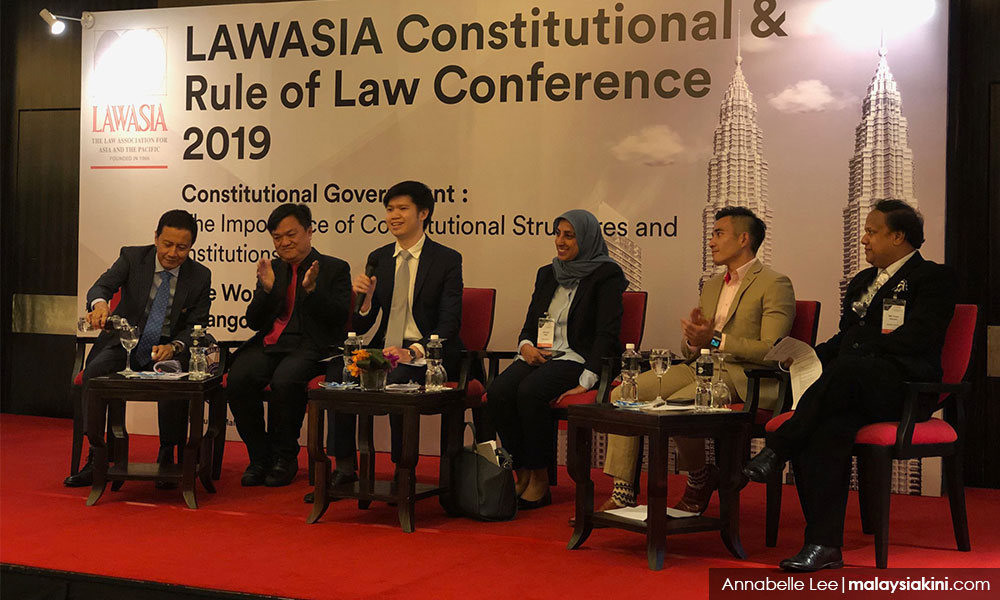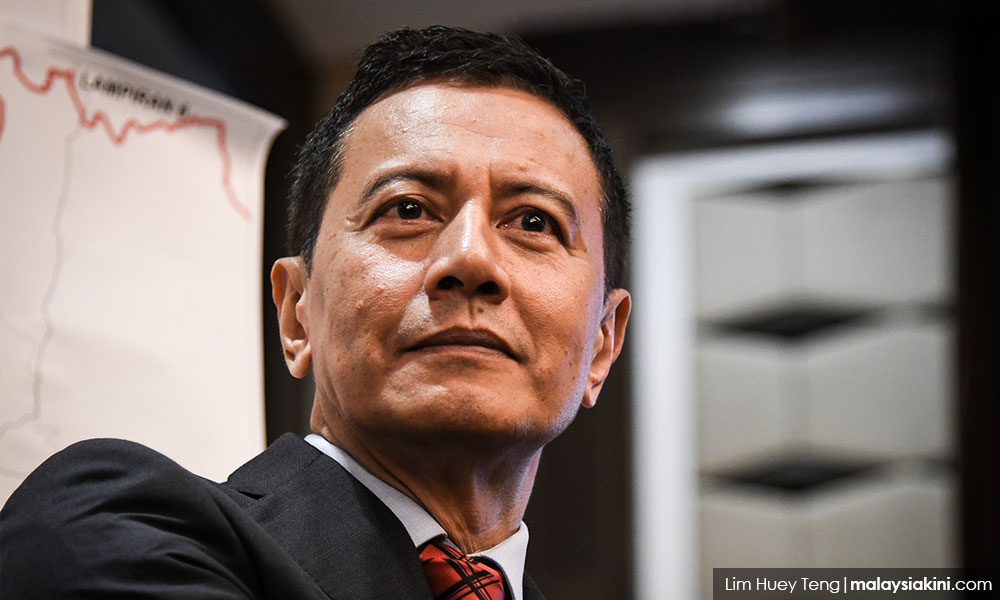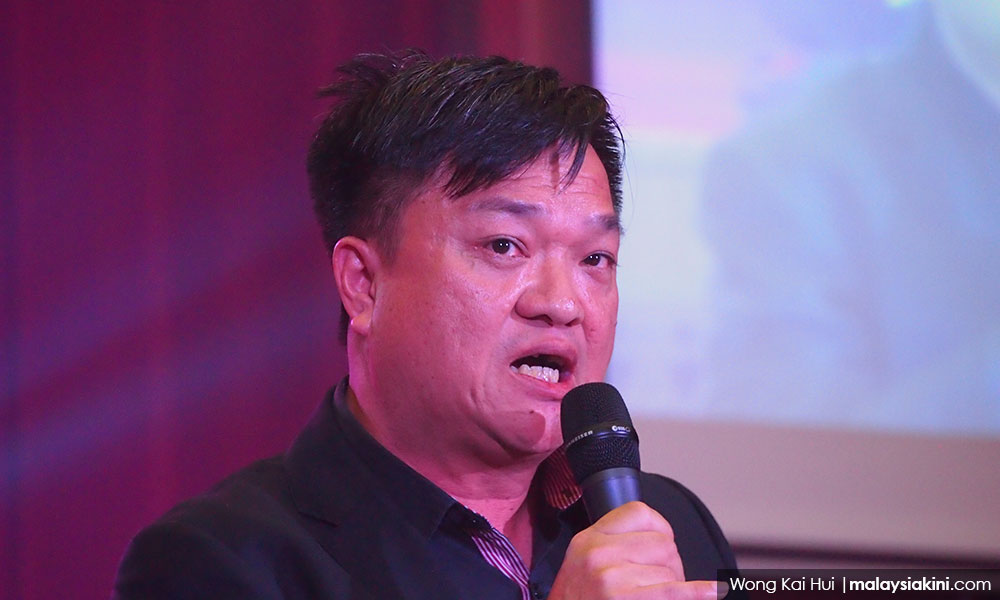
The rakyat needs to continue pressing the government to expedite institutional reforms, urged EC chief Azhar Azizan Harun.
Speaking at a forum entitled “Strengthening Constitutional Institutions: Malaysia’s Reform Programme” today, he admitted that change was uncomfortable thus the need for public pressure.
“Noise pushes reform. Reforms are changes, changes are uncomfortable. There must be enough awareness, there must be enough push [...]
“We have to do whatever within our means to push for reforms [...] otherwise it will not happen because people are comfortable (where they are).
“People who used to be uncomfortable, who are now in power, will get comfortable.
"You have to continue to make them uncomfortable,” he said in response to a question on ways to push Pakatan Harapan to deliver on the reforms it promised during GE14.
Azhar, a former legal practitioner, urged the many lawyers in the audience to take up more public interest cases to hold the government and public institutions accountable.

“Go to court and sue the EC please! Let the court adjudicate and we will go along with that,” he quipped in jest.
The forum was held as part of regional lawyers group Lawasia’s "Constitutional and Rule of Law" conference.
Also on the panel was Umno Youth vice-chief Shahril Sufian Hamdan, who said public pressure for reform could only be generated if more segments of society understood the need for it.
This, he proposed, is where opposition politicians like him could play a part.
“How do we ensure each circle can speak about democracy (and) can fight for democracy in its own vernacular and own way? [...]
“You need champions for democracy in every crowd, not just this crowd. You need an Umno guy to be a champion of democracy using his own vernacular and sometimes going about it in a roundabout way,” he said.
Gov’t deciding but not communicating
Lawyer Malik Imtiaz, who earlier had posed the question to the forum panel, also lamented the slow pace of reforms and queried if there was a central body within the government driving institutional change.
In response, MACC chief Latheefa Koya explained that the cabinet had made many decisions on institutional reforms in recent months.
However, she admitted that there was some resistance to these changes from parties “whom you least expect” but stopped short of naming them due to confidentiality concerns.
Latheefa opined that public frustration was largely due to a lack of communication between the government and stakeholders as well as the public.
“There are a lot of things going on behind the scenes [...] but the lack of information that comes out allows speculation, a lot of conjectures and a lot of unfair expectations of how things should move faster [...]
“I think what needs to be done is actually more communication, more transparency from the government’s side. To let those who are waiting to hear (know) what is going on,” she said.
Real check and balance
Earlier, during his presentation on his proposed reforms, Azhar mooted that a transparent and independent nomination mechanism be implemented for all government institutions.

He also called for all public bodies to be subject to effective check and balance mechanisms, calling the EC’s own accountability measures “a mockery to the principles of natural justice”.
For example, the commission drafts, adjudicates and amends its own redelineation proposals before submitting it the prime minister for approval.
Meanwhile, Jeffrey Sachs Center for Sustainable Development senior fellow Wong Chin Huat urged Harapan to consider amending the present "first past the post" electoral system to include elements of the "mixed-member proportional" system.
This, he said, would discourage racial politics as it would allow more power-sharing among political parties. - Mkini


No comments:
Post a Comment
Note: Only a member of this blog may post a comment.